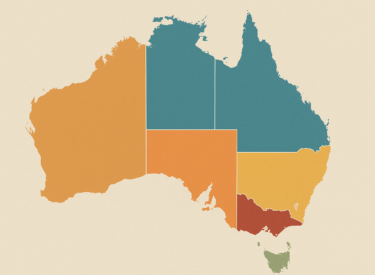
Key takeaways
Homeowners feel more financially secure than renters, thanks to the stability and equity provided by property ownership.
Economic pressures are driving Australians to diversify their income, with side hustles and secondary jobs becoming common strategies, especially among Millennials.
Younger Australians remain optimistic, with many feeling financially better off than they were two years ago, showcasing their adaptability and resilience.
Homeownership continues to be a vital goal, offering not just a place to live but also a foundation for financial confidence and wealth-building.
Believe it or not...Australians are feeling confident about their financial future despite today’s challenging economic environment.
This is the finding of the “No Place Like Home” report by Great Southern Bank, which sheds light on the evolving financial attitudes and behaviours of Australians.
The findings are a mix of optimism, adaptability, and a clear recognition of the hurdles ahead, especially on homeownership and financial security.
Confidence in financial goals: a tale of two groups
The report reveals a striking divide in confidence levels between homeowners and renters.
On the one hand, homeowners are bolstered by the security of their property assets and are more likely to feel confident about achieving both their short- and long-term financial goals.
This sense of security stems from the equity they hold, which acts as a financial buffer and a stepping stone for future wealth-building opportunities.
Renters, on the other hand, tend to express more uncertainty, largely due to rising rents and living costs.
The struggle to save for a deposit while managing day-to-day expenses creates significant barriers, dampening their confidence in achieving financial milestones like homeownership or retirement savings.

The impact of economic pressures on financial behaviours
It’s no surprise that the economic pressures of rising living costs and interest rate increases are prompting Australians to rethink their financial strategies.
According to the report, two-thirds of homeowners are exploring ways to diversify their income.
From taking on side hustles to seeking secondary jobs, there is a growing trend towards proactive financial management.
This trend is especially prevalent among Millennials.

Since they are often saddled with larger mortgage repayments due to buying during recent market peaks, this generation is finding innovative ways to stay ahead.
Whether it’s tapping into the gig economy or leveraging skills for freelance work, Millennials are redefining what financial resilience looks like in the modern era.
A generational perspective: optimism among the young
Interestingly, younger Australians, particularly Gen Z, exhibit remarkable optimism.
The report highlights that many Gen Z respondents feel better off financially compared to two years ago.
This confidence can be attributed to their adaptability and readiness to embrace new opportunities, such as upskilling and tapping into digital or remote work options.
In contrast, Baby Boomers and older Gen Xers are more cautious.
With many approaching or already in retirement, this cohort is focused on preserving wealth rather than taking financial risks.
Their confidence in financial stability often hinges on the assets they’ve accumulated over decades, particularly property.
The role of homeownership in financial security
Homeownership emerges as a central theme in the report.
Owning a home isn’t just about having a place to live; it’s a cornerstone of financial stability.
This means that the ability to build equity, hedge against rising rents, and benefit from capital growth makes property ownership a significant contributor to long-term wealth.
However, the pathway to homeownership remains challenging, especially for first-time buyers.
Saving for a deposit, navigating loan approvals, and competing in high-demand markets are common hurdles.
Yet, many Australians still view owning a home as a critical step towards financial independence.
What does this mean for you?
For those navigating today’s economic challenges, this report highlights the importance of adaptability and a proactive approach to finances.
Whether it’s exploring new income opportunities or reevaluating financial goals, resilience is key.
And for those on the path to homeownership, understanding the market and planning strategically can make all the difference.














